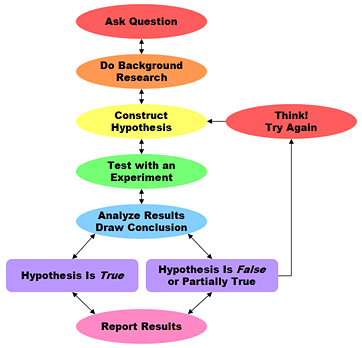1.) Does hot water or cold water freeze faster?
answer: cold
2.) Does hot water or cold water boil faster?
answer: They boil at the same rate
3.) Does salt water freeze faster or slower than regular water?
answer: slower
Questions/Items to then include in you blog posting for this activity:
1. Pictures of your experimental materials and setup.
2. Your hypothesis to the questions posed.I predict that the cold water will freeze faster because the water is already cold. The hot water has a bigger temperature differnce to reach before freezing, but the cold water is already cold. Going along the same lines, I also predict that the hot water will boil faster because its temperature is already warm. And finally I predict that the salt water will freeze slower than regular water because when you think about it you never see salt water in nature frozen.
3. Data in the form of a graph or table
Freezing time | Boiling time | |
| 1 cup at hot water | 1 hr. 26 min. | 3 min. 36 sec. |
| 1 cup of cold water | 1 hr. 3 min. | 3 min. 36 sec. |
| 1 cup of cold water plus an added teaspoon of salt | 1 hr. 35 min. | N/A |
4. Show data of experiment repeated
Freezing time | Boiling time | |
| 1 cup at hot water | 1 hr. 24 min. | 3 min. 25 sec. |
| 1 cup of cold water | 1 hr. 10 min. | 3 min. 28 sec. |
| 1 cup of cold water plus an added teaspoon of salt | 1 hr. 38 min. | N/A |
5. List your controlled variables for your experiment
My controlled variables include always using the same water (tap water), using the same pots and pans for the boiling part of the experiment, same burnders used, same cups used to freeze the different kinds of water, etc.
Water=boiling when I can see bubbles on the surface
Water=frozen when the first layer of water in the glass is frozen
6. Formulate a theory that answers the questions posed.
It does not matter what temp the water starts out while boiling because hot water and cold water freeze at the same rate
The temp the water starts out at when freezing water does not matter because even though the cold water will freeze faster, both the hot water and the cold water will eventually freeze throughout.
Large amounts of salt water, like the ocean, will never freeze due to the large mass of it. At first the salt water will freeze slower than water without salt, but it will turn into a more slushly like consistancy while the non salt water will be hard like an ice cube.
7. Image of the atoms that make up water molecules.
8. Video or animation that shows how water molecules are arranged in the three states of matter for water.

9. Describe the scientific method/process and how each step correlates to your own experiments.

No comments:
Post a Comment